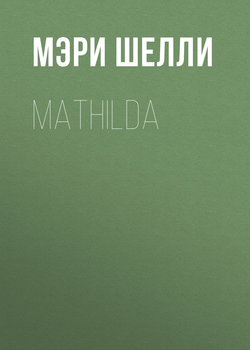Читать книгу Mathilda - Мэри Шелли - Страница 5
CHAPTER IV
ОглавлениеAmong our most assiduous visitors was a young man of rank, well informed, and agreable in his person. After we had spent a few weeks in London his attentions towards me became marked and his visits more frequent. I was too much taken up by my own occupations and feelings to attend much to this, and then indeed I hardly noticed more than the bare surface of events as they passed around me; but I now remember that my father was restless and uneasy whenever this person visited us, and when we talked together watched us with the greatest apparent anxiety although he himself maintained a profound silence. At length these obnoxious visits suddenly ceased altogether, but from that moment I must date the change of my father: a change that to remember makes me shudder and then filled me with the deepest grief. There were no degrees which could break my fall from happiness to misery; it was as the stroke of lightning – sudden and entire.43 Alas! I now met frowns where before I had been welcomed only with smiles: he, my beloved father, shunned me, and either treated me with harshness or a more heart-breaking coldness. We took no more sweet counsel together; and when I tried to win him again to me, his anger, and the terrible emotions that he exhibited drove me to silence and tears.
And this was sudden. The day before we had passed alone together in the country; I remember we had talked of future travels that we should undertake together – . There was an eager delight in our tones and gestures that could only spring from deep & mutual love joined to the most unrestrained confidence[;] and now the next day, the next hour, I saw his brows contracted, his eyes fixed in sullen fierceness on the ground, and his voice so gentle and so dear made me shiver when he addressed me. Often, when my wandering fancy brought by its various images now consolation and now aggravation of grief to my heart,44 I have compared myself to Proserpine who was gaily and heedlessly gathering flowers on the sweet plain of Enna, when the King of Hell snatched her away to the abodes of death and misery. Alas! I who so lately knew of nought but the joy of life; who had slept only to dream sweet dreams and awoke to incomparable happiness, I now passed my days and nights in tears. I who sought and had found joy in the love-breathing countenance of my father now when I dared fix on him a supplicating look it was ever answered by an angry frown. I dared not speak to him; and when sometimes I had worked up courage to meet him and to ask an explanation one glance at his face where a chaos of mighty passion seemed for ever struggling made me tremble and shrink to silence. I was dashed down from heaven to earth as a silly sparrow when pounced on by a hawk; my eyes swam and my head was bewildered by the sudden apparition of grief. Day after day45 passed marked only by my complaints and my tears; often I lifted my soul in vain prayer for a softer descent from joy to woe, or if that were denied me that I might be allowed to die, and fade for ever under the cruel blast that swept over me,
43
In F of F – A there follows a passage which has been scored out and which does not appear in Mathilda: "I have tried in somewhat feeble language to describe the excess of what I may almost call my adoration for my father – you may then in some faint manner imagine my despair when I found that he shunned [me] & that all the little arts I used to re-awaken his lost love made him" – . This is a good example of Mary's frequent revision for the better by the omission of the obvious and expository. But the passage also has intrinsic interest. Mathilda's "adoration" for her father may be compared to Mary's feeling for Godwin. In an unpublished letter (1822) to Jane Williams she wrote, "Until I met Shelley I [could?] justly say that he was my God – and I remember many childish instances of the [ex]cess of attachment I bore for him." See Nitchie, Mary Shelley, p. 89, and note 9.
44
Cf. the account of the services of Fantasia in the opening chapter of F of F – A (see pp. 90-102) together with note 3 to The Fields of Fancy.
45
This passage beginning "Day after day" and closing with the quotation is not in F of F – A, but it is in S-R fr. The quotation is from The Captain by John Fletcher and a collaborator, possibly Massinger. These lines from Act I, Sc. 3 are part of a speech by Lelia addressed to her lover. Later in the play Lelia attempts to seduce her father – possibly a reason for Mary's selection of the lines.
